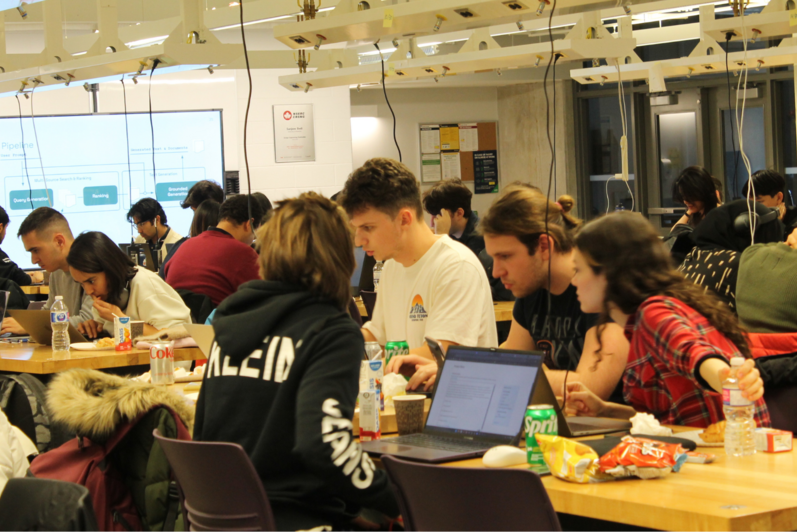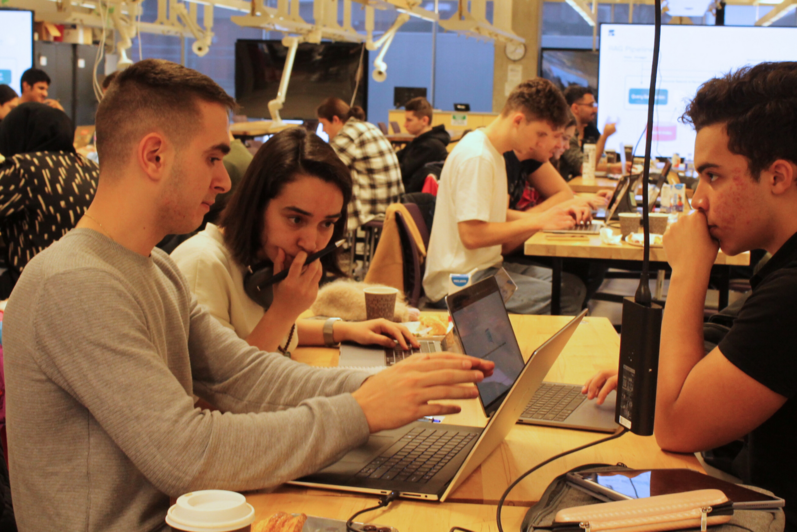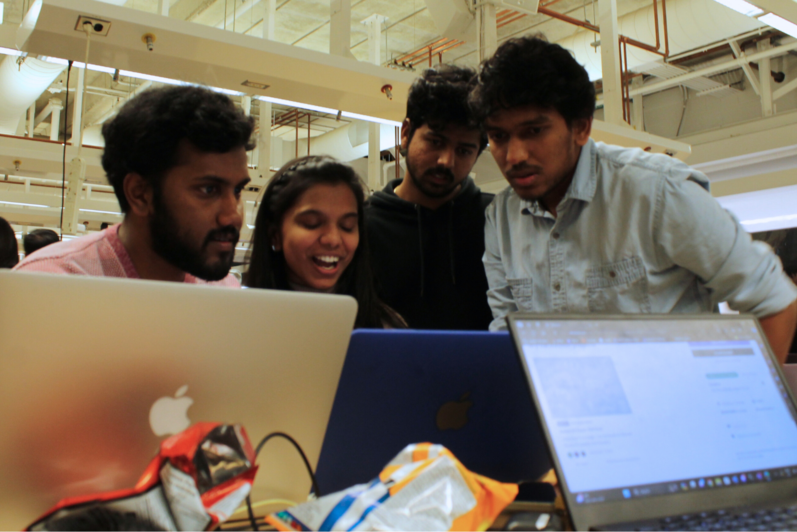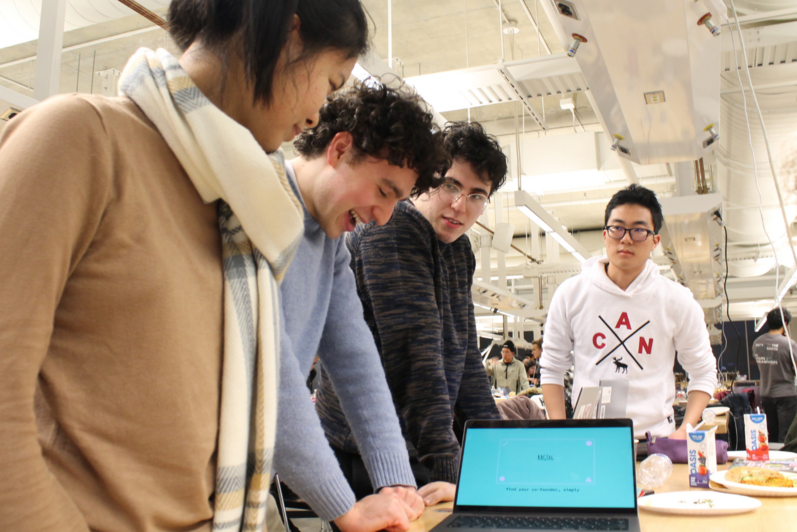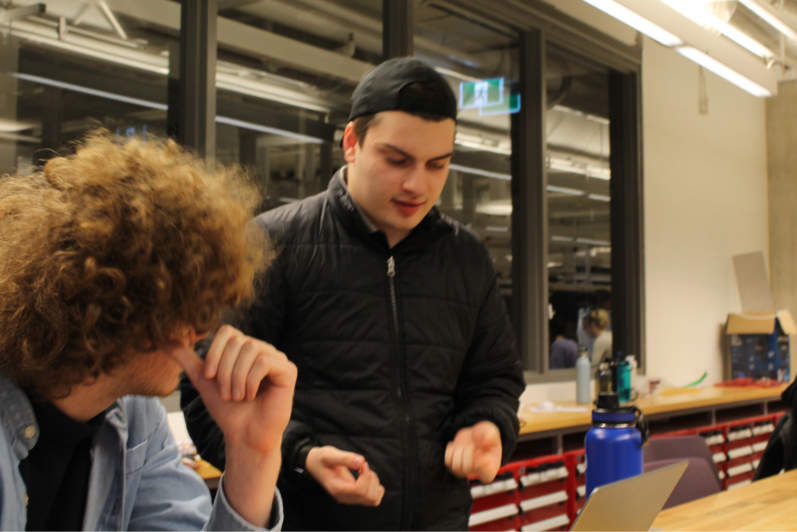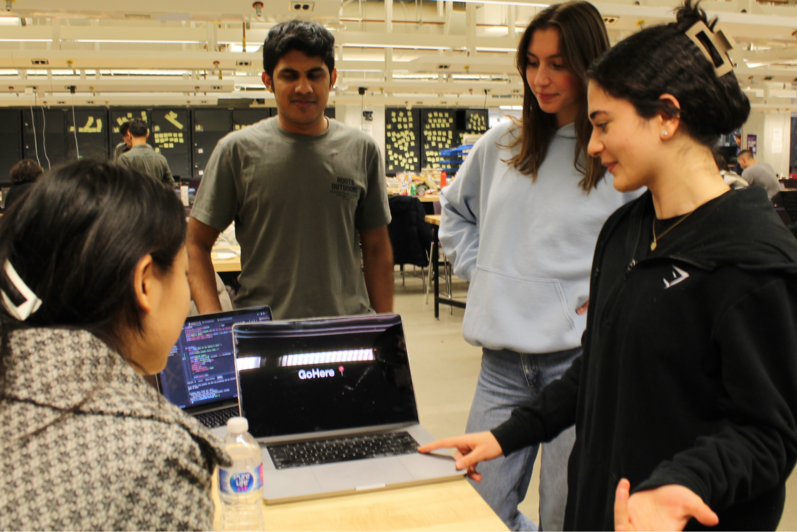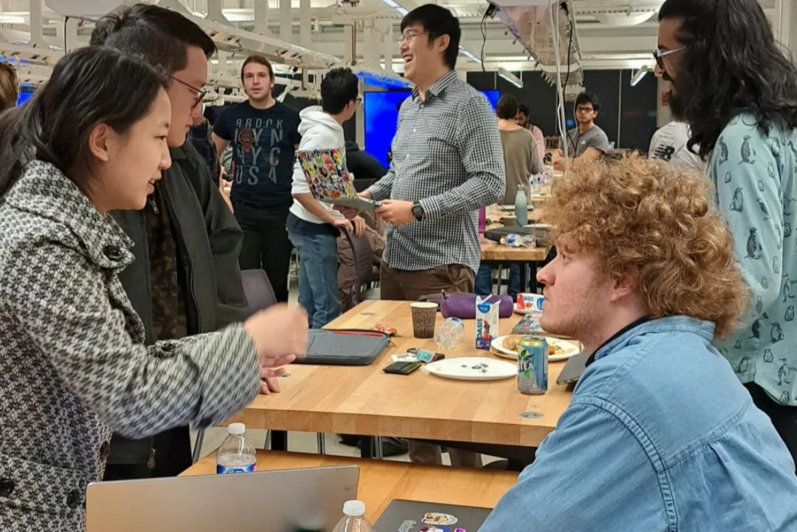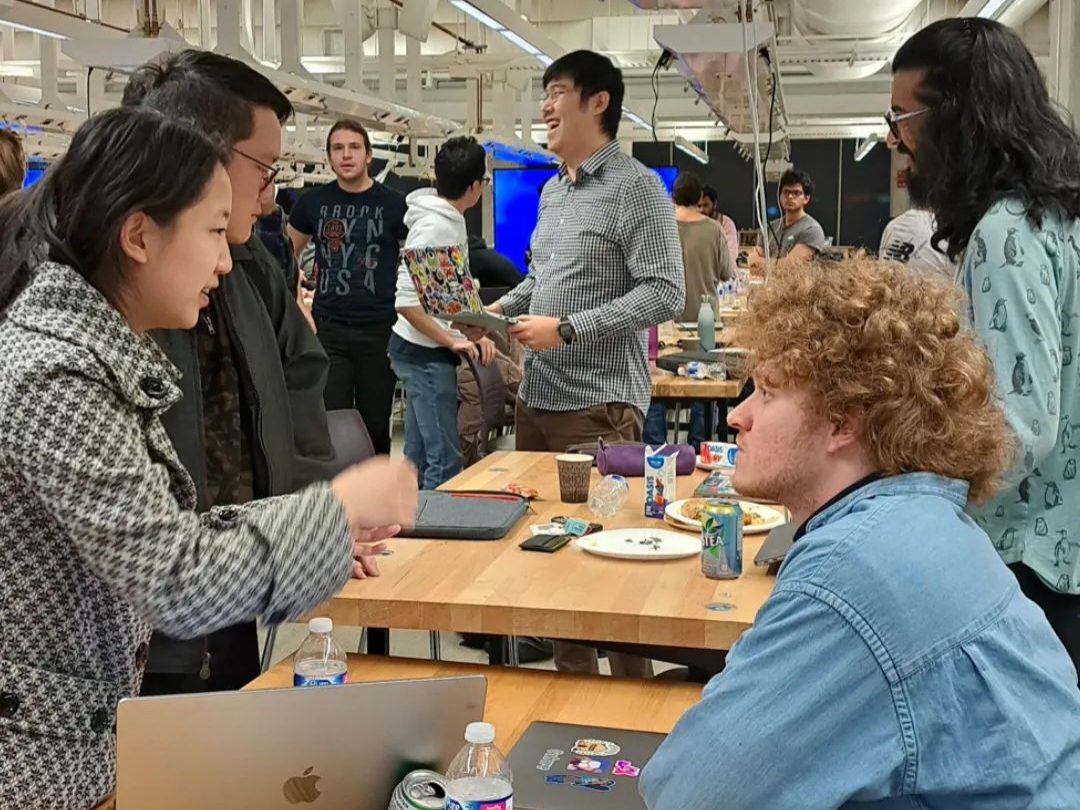MedChat wins Cohere Retrieval Augmentation Generation Hackathon
In a rapidly evolving world where artificial intelligence is reshaping not only entire industries but the world itself, students need to be prepared to harness this technology to solve pressing issues. With this goal in mind, Cohere and Waterloo.AI sponsored a student-led hackathon that focused on Retrieval Augmented Generation — also known as RAG — at the University of Waterloo’s IDEAs clinic.
Collaborating with WAT.ai, UW Data Science Club, together with Professor Jimmy Lin, Faraz Khoubsirat, a third-year software engineering student, and Bing Hu, a computer science PhD student, organized a day-long hackathon on November 26 with more than 50 engaged participants. For the challenge, participants were asked to tackle real-world problems they could solve using Cohere’s powerful AI engines and RAG APIs.
RAG is the next-generation framework for large language models. AI models such as Cohere’s Coral use RAG to retrieve facts from an external knowledge base to ground itself on the most accurate, up-to-date information and to give users insights into its generative process.
During the hackathon, students had full access to Cohere’s powerful models including Command, a generative AI model competitive with ChatGPT, Embed, a top-performing embedding model that converts text to vectors, and Rerank, a top-performing model that improves the relevance of search systems. With these highly capable AI tools, students were able to harness their creativity to develop innovative solutions to challenging problems.
Winning teams
In first place, MedChat leverages RAG to bridge the gap between AI advancements and medical practice. It provides a sophisticated chat interface for medical professionals, allowing them to access and query medical literature and use AI-powered diagnostic tools.

In second place, SVG-gen is a pioneering Python project that harnesses RAG and Cohere APIs to generate SVG files from user input. Trained on a vast dataset of 300,000 SVG files, this project demonstrates a seamless integration of Cohere’s RAG capabilities within a StreamLite framework. Its innovation lies in efficiently translating natural language inputs into visually compelling SVG graphics, showcasing a novel application of AI in graphic generation.

In third place, CoWhere is an AI-powered codebase assistant inspired by the challenges developers face with large, complex codebases. Using RAG technology, CoWhere connects to GitHub repositories, providing instant, context-sensitive answers to code-related queries. This innovative tool aims to streamline the coding process, enhancing efficiency and comprehension in software development.

If you are a student looking to get involved in AI, stay up to date by following WAT.ai, UW Data Science Club, and the Waterloo.AI newsletter for news on future hackathons, workshops, projects, and opportunities.
If you are in industry looking to get involved, email Harold Godwin, Waterloo.AI’s Managing Director, to learn about opportunities.
For more information on the other projects, view the Devpost page of the hackathon.

